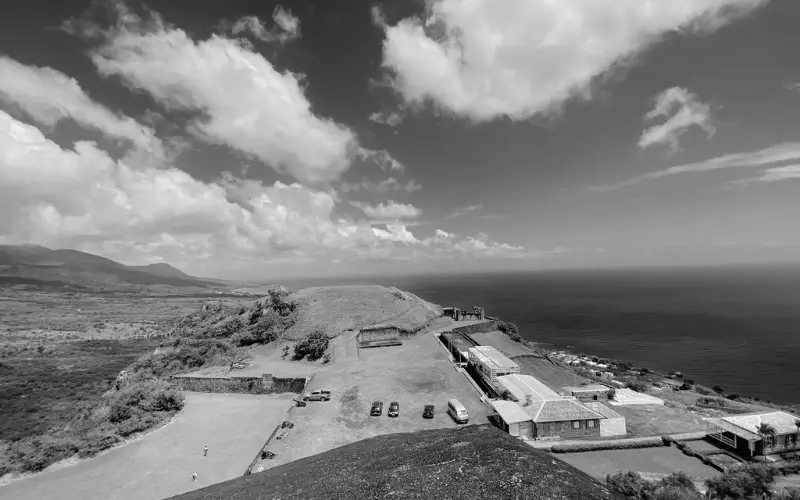Section 1: Legal Framework And Governance
What law governs a Nevis trust?
A Nevis International Trust is governed by the Nevis International Exempt Trust Ordinance (NIETO), originally enacted in 1994 and updated through subsequent amendments. This legislation provides the statutory framework that defines how international trusts are established, managed, and protected under Nevis law.
How was Nevis trust law developed, and what influenced its structure?
Nevis trust law was modeled after the Cook Islands International Trusts Act, with the aim of creating a strong, modern legal environment for asset protection and estate planning. By enacting NIETO, Nevis positioned itself as a competitive jurisdiction for international trusts, combining statutory protections with the flexibility needed for cross-border wealth structuring.
What is Nevis trust law based on?
Nevis trust law is rooted in English common law principles, supplemented by local statutes and judicial decisions. This blend provides a familiar legal foundation for advisors and clients in common law jurisdictions, while offering additional protections through Nevis-specific legislation.
What is the legal status of a Nevis trust?
A Nevis International Trust is not a separate legal entity. Instead, it is a fiduciary relationship in which the trustee holds legal title to the trust assets and manages them for the benefit of the named beneficiaries. This distinction is key to understanding how trust assets are treated for tax, legal, and creditor protection purposes.
What is the importance of including a governing law clause in the trust deed?
A governing law clause in the trust deed confirms that Nevis law applies to the trust. This is important because it helps prevent foreign courts from applying their own laws, such as forced heirship rules or local succession laws, to the trust. By clearly stating that the trust is governed by Nevis law, the trustee gains stronger legal protection and certainty that disputes or claims will be handled under the Nevis International Exempt Trust Ordinance (NIETO) rather than foreign legal systems.
Are Nevis trusts revocable?
Yes, Nevis international trust may be either revocable or irrevocable, depending on how it is drafted. The trust deed must clearly state the settlor’s powers, including whether the settlor retains the right to revoke, amend, or replace the trust during their lifetime.
Are Nevis trusts internationally recognized?
Nevis trusts are widely recognized in international financial planning, cross-border estate structuring, and offshore asset protection. They are frequently used by high-net-worth individuals, families, and advisors looking for a stable jurisdiction with well-developed trust legislation and favorable legal protections.
Section 2: Trust Setup And Structure
Is a trust a legal entity?
No. A Nevis trust is not a separate legal entity. A trust is a legal arrangement in which a trustee holds and manages assets on behalf of beneficiaries. The trust itself cannot enter into contracts or own property in its own name; instead, the trustee acts in a fiduciary capacity under the terms of the trust deed.
What is the structure of a trust?
A typical Nevis trust structure includes four components: the settlor (who creates the trust and contributes assets), one or more trustees (who manage the assets), the beneficiaries (who may receive distributions), and optionally, a protector (who may oversee the trustee). The rights and duties of each party are defined in the trust deed.
What is the role of the resident agent in a Nevis trust?
The resident agent acts as the official point of contact for the trust in Nevis. This licensed Nevis service provider handles statutory filings, annual renewals, and communications with the Financial Services Regulatory Commission (FSRC). While the resident agent ensures local compliance, they do not manage trust assets unless separately appointed as trustee.
What is the role of the settlor in a Nevis trust?
The settlor is the individual who establishes the trust and contributes assets to it. In a Nevis international trust, the settlor typically defines the trust’s objectives, appoints the trustee, and may provide further instructions through a letter of wishes. Once the trust is settled, legal ownership of the assets is transferred to the trustee.
Can the settlor remain anonymous?
Yes. Nevis trust law allows the settlor to remain anonymous by using a declaration of trust. In this structure, the trustee can unilaterally declare that it holds certain assets in trust, without identifying the settlor in the trust deed. This feature supports privacy and confidentiality for estate and asset planning.
What powers can the settlor retain in a Nevis trust?
Under the Nevis International Exempt Trust Ordinance (NIETO), a settlor may retain certain powers without invalidating the trust. These may include the power to remove and replace trustees, veto distributions, or appoint new beneficiaries. However, retaining excessive control may raise asset protection or tax concerns in the settlor’s home country.
What is the role of the trustee in a Nevis trust?
The trustee holds legal title to the trust assets and manages them in accordance with the trust deed and Nevis law. The trustee is responsible for acting in the best interests of the beneficiaries and must exercise fiduciary duties such as loyalty, prudence, and impartiality. Trustees may be individuals or corporate entities licensed in Nevis.
How many trustees must a Nevis trust have?
A Nevis International Trust must have at least one trustee. To qualify as an international trust under NIETO, at least one trustee must be either a licensed trust company in Nevis or a Nevisian attorney-at-law. Additional trustees may be appointed if desired.
What is the difference between a registered agent and a trustee?
A registered agent handles regulatory filings and compliance with Nevis law, while the trustee manages the trust assets and carries out the instructions set out in the trust deed. The agent acts as a local liaison, but does not control the assets unless separately appointed as a trustee.
Can the registered agent also act as the trustee?
Yes. A registered agent may also serve as trustee, but only if they are separately appointed and meet the licensing requirements under NIETO. This arrangement is common when using licensed trust companies that provide both administrative and trustee services.
What happens to the trust if the trustee dies?
If a trustee dies or becomes incapacitated, the trust continues according to its terms. A successor trustee is typically named in the trust deed. If no successor is designated, the protector or a Nevis court may appoint one to ensure continuity of trust administration.
What is the role of the beneficiaries in a Nevis trust?
Beneficiaries are the individuals or entities who may receive distributions from the trust. Their rights depend on the trust deed. In a discretionary trust, they do not have fixed entitlements, while in a fixed trust, their rights to income or capital may be specifically outlined.
Can beneficiaries be added or removed?
Yes. A Nevis International Trust may include provisions that allow the trustee or protector to add or remove beneficiaries. This flexibility is often built into discretionary trusts and can be useful for adapting to changes in family circumstances or estate plans.
Can the settlor also be a beneficiary?
Yes. The settlor may also be named as a beneficiary of a Nevis trust. However, retaining a beneficial interest should be carefully structured to avoid undermining asset protection goals or triggering tax consequences in the settlor’s jurisdiction.
What is the role of the protector in a Nevis trust?
The protector is an optional party appointed to oversee the trustee and safeguard the settlor’s intent. The protector may be given powers such as approving distributions, removing trustees, or amending certain trust terms. This role adds an extra layer of oversight.
Does the Nevis trust require a protector?
No. A protector is not mandatory under NIETO, but many international trusts include one to provide oversight, especially in family or private trust company structures. Whether to appoint a protector depends on the complexity and goals of the trust.
What is the role of the trust deed in a Nevis trust?
The trust deed is the core legal document that defines the terms of the trust. It outlines the duties of the trustee, the rights of the beneficiaries, the trust’s duration, asset management provisions, and any reserved powers or succession planning instructions.
What is a letter of wishes?
A letter of wishes is a non-binding document created by the settlor to guide the trustee in administering the trust. It may express the settlor’s preferences regarding distributions, investment strategy, or other discretionary matters. While not legally enforceable, it is usually respected by trustees.
What is the difference between a trust deed and a letter of wishes?
The trust deed is a legally binding agreement that establishes and governs the trust. A letter of wishes, by contrast, is informal guidance provided by the settlor. It does not override the deed but can help inform trustee decisions in line with the settlor’s intent.
How do you set up a trust in Nevis?
A Nevis International Trust is created by preparing and signing a valid trust deed, appointing at least one qualified trustee, and registering the trust through a licensed resident agent. The agent submits a certificate of establishment and supporting documents to the FSRC as required under NIETO.
What are the annual requirements for a Nevis trust?
Nevis trusts must be renewed annually through the resident agent. Trustees are required to maintain accurate accounting records, although trusts are not subject to local filing or tax obligations if they do not earn Nevis-source income or have Nevisian beneficiaries.
What is the timeline to set up a Nevis trust?
A standard Nevis trust can usually be established within 1 to 3 weeks. The timeline depends on the complexity of the trust structure, the responsiveness of the parties involved, and the due diligence process conducted by the resident agent and trustee.
Can a Nevis trust be amended after it is established?
Yes. A Nevis trust may be amended if the trust deed allows for it. Amendments typically require trustee and/or protector approval, and must comply with any conditions stated in the original deed. Flexibility provisions are common in modern international trust planning.
Can a Nevis trust migrate to another jurisdiction?
Yes. Nevis International TrustS may include a redomiciliation clause that allows them to be transferred to another jurisdiction. This provides flexibility in response to legal, tax, or regulatory changes. Migration must follow the process set out in the trust deed and comply with local law in the new jurisdiction.
Section 3: Trust Assets and Ownership
What assets can be held in a Nevis trust?
A Nevis international trust can hold a wide variety of offshore assets, including bank accounts, investment portfolios, company shares, digital assets such as cryptocurrency and NFTs, precious metals, movable property, and intellectual property. This flexibility makes Nevis International Trusts ideal for asset protection, estate planning, and cross-border wealth structuring.
Are there any asset types that should not be transferred to a Nevis trust?
Yes. A Nevis trust cannot hold real estate located in St Kitts or Nevis. Additionally, some domestic retirement accounts, regulated licenses, or government bonds may be restricted by the settlor’s home country laws. It’s important to review local tax, pension, or regulatory rules before transferring sensitive or restricted assets into an offshore trust.
How do you transfer assets to a Nevis trust?
Assets are transferred into a Nevis International Trust through legal assignment or formal transfer of ownership. The exact method depends on the asset class:
- Bank accounts: transferred by formal instruction to the bank
- Shares: assigned by transfer documents and updated share registers
- Intellectual property: assigned by deed or registration change
- Digital assets: transferred to a wallet held by the trustee
The trustee must formally accept the assets, and all transfers should be documented for legal and compliance purposes.
Can a Nevis trust hold digital assets like cryptocurrency or NFTs?
Yes. A Nevis trust can legally hold digital assets, including cryptocurrencies, NFTs, and other blockchain-based property. These assets should be properly documented, with wallet access secured by the trustee or an appointed custodian. Including clear terms in the trust deed for custody, management, and succession of digital assets is strongly recommended.
Can a Nevis trust hold bank accounts in any country?
A Nevis International Trust may open and hold bank accounts in various jurisdictions, subject to the compliance requirements of each bank. While many trustees prefer accounts in trusted offshore banking centers, the trust is not restricted to Nevis-based accounts. The chosen bank must be willing to onboard the trust and trustee under its due diligence policies.
Can a Nevis trust hold foreign real estate?
Yes. A Nevis trust can hold real estate located outside of St Kitts and Nevis, provided the property is properly titled in the name of the trustee or a holding company. Many international clients use Nevis trusts to hold villas, apartments, or investment properties in jurisdictions that permit trust or corporate ownership of land.
How does the Nevis trust treat TBE property?
Nevis law allows tenants by the entirety (TBE) property, typically held by married couples, to retain its character when transferred into a trust, as long as the trust deed explicitly states this intent. This feature is useful for U.S. clients who want to preserve TBE protections within an offshore trust structure.
Can retirement accounts or pensions be transferred into a Nevis trust?
Some retirement accounts or pension assets may be transferred into a Nevis International Trust, but this depends entirely on the laws of the jurisdiction where the account is held. In many cases, direct transfers are not permitted due to tax restrictions or regulatory rules. However, the trust can often be named as a beneficiary of the account or receive distributions after withdrawal.
Can a Nevis trust own a company?
Yes. A Nevis trust can own shares in offshore companies, such as Nevis IBCs or LLCs, as well as entities incorporated in other jurisdictions. Holding corporate shares through a trust allows the settlor to separate personal ownership from legal control, often used in estate planning and international structuring.
Can a Nevis trust run a business?
A Nevis trust can be used to own and operate a business, typically through an underlying company. The trustee may be authorized by the trust deed to manage business activities directly or delegate management to directors. This setup is common in family enterprises or asset protection structures involving income-generating entities.
Section 4: Asset Protection and Legal Security
How does a Nevis trust provide asset protection?
Nevis International Trusts are widely used for asset protection due to their strong legal barriers against creditor claims. Key features include a one-year statute of limitations for fraudulent transfers, a requirement for creditors to post a USD 100,000 bond to bring a claim, and a high burden of proof. The trust structure separates legal ownership from personal assets, helping shield wealth from lawsuits, judgments, and other legal risks.
Does moving assets into a trust offer immediate protection?
Asset protection takes effect once assets are validly transferred into a Nevis trust and accepted by the trustee. However, transfers made after a creditor’s cause of action may be subject to challenge under the fraudulent conveyance rule. Early planning is key and protection is strongest when the trust is established well in advance of any dispute or liability.
Can a Nevis trust protect assets from business creditors or lawsuits?
Yes. A properly structured Nevis trust can protect assets from claims arising from personal or business liabilities. If a settlor faces litigation, bankruptcy, or creditor pressure, the trust assets are not considered part of their personal estate, provided transfers occurred before any legal action or cause of action arose.
Can a Nevis trust protect assets during litigation or investigations?
Nevis International Trusts offer strong protections, even during ongoing legal actions. However, courts may scrutinize transfers made after a claim arises. If the trust was formed prior to litigation or investigations, the assets are generally insulated. Nevis courts do not assist foreign enforcement unless the matter is retried locally under Nevis law.
Is there a statute of limitations for bringing claims against a Nevis trust?
Yes. Nevis law imposes a strict one-year limitation period for fraudulent transfer claims. A creditor must file a claim within one year of the cause of action arising or risk being barred from challenging the transfer. This time limit significantly reduces long-term exposure and adds certainty to the trust structure.
What is the fraudulent conveyance rule in Nevis?
Under Nevis law, a transfer into a trust is only considered fraudulent if it was made within one year of the creditor’s cause of action. The creditor must also prove, beyond a reasonable doubt, that the transfer was intended to defraud them. These high standards make it extremely difficult to unwind asset transfers once this period has passed.
Are foreign judgments enforceable against a Nevis trust?
No. Nevis does not recognize foreign judgments relating to trust matters unless the case is re-litigated in Nevis. Even if a creditor wins a case in another country, they must start legal proceedings in Nevis to pursue trust assets – subject to Nevis rules, bond requirements, and evidentiary standards.
Can a Nevis trust be declared void by a foreign court?
A foreign court cannot invalidate a Nevis trust simply because it conflicts with local rules, such as forced heirship or community property laws. Nevis law provides jurisdictional independence, and trusts are upheld based on local statute, not foreign legal doctrines. Trust validity must be tested under Nevis law.
What happens if the trust assets are located outside Nevis?
Nevis law governs the trust relationship, but enforcement may depend on the location of the assets. If assets are held in banks or companies outside Nevis, a foreign court could attempt enforcement against the asset, even if it cannot dissolve the trust. To reduce this risk, many planners use Nevis-based holding companies or banks in asset-protection-friendly jurisdictions.
Can a Nevis trust be sued?
Yes, but only under strict conditions. Any claimant must post a non-refundable USD 100,000 bond, appear in person in Nevis, and prove their case beyond a reasonable doubt. These procedural barriers are intentionally high to discourage frivolous or opportunistic claims.
Can trustees be sued under Nevis law?
Trustees can be held accountable if they breach their fiduciary duties or mismanage trust assets. However, Nevis provides strong legal protections for trustees acting in good faith and within the trust’s terms. Lawsuits must be brought in Nevis and meet strict evidentiary standards.
How does Nevis law treat attempts to pierce the trust or corporate veil?
Nevis law does not recognize doctrines like “piercing the veil” in the way some jurisdictions do. As long as the trust is properly formed and administered, courts will respect the separation between the settlor’s personal estate and the trust. Asset protection structures such as LLCs or IBCs held within the trust also benefit from this barrier.
What powers can the settlor retain without weakening asset protection?
A settlor may retain certain powers, such as removing trustees, issuing a letter of wishes, or vetoing distributions, without compromising the trust. However, excessive control may raise legal questions about the trust’s independence, particularly in tax or asset protection disputes. The trust deed should balance settlor involvement with trustee autonomy.
What is the difference between spendthrift and protective trusts?
Both types of trusts are used to shield beneficiaries from creditors. A spendthrift trust restricts a beneficiary’s ability to assign or pledge their interest, preventing creditors from reaching it. A protective trust activates restrictions only when the beneficiary faces a legal threat. In Nevis, these terms are often used interchangeably, with provisions included in discretionary trusts for added flexibility.
Can a Nevis trust provide protection in divorce proceedings?
Yes. Assets held in a Nevis trust are legally separated from the settlor’s personal estate and generally excluded from marital property divisions. If the trust is properly structured and created before the marriage deteriorates, it can provide effective protection. However, local courts in the divorcing spouse’s country may attempt to exert influence over foreign-held assets.
Can a Nevis trust be challenged by family members or heirs?
Family members may attempt to challenge a trust if they feel unfairly excluded. However, Nevis law does not recognize forced heirship, and properly drafted trusts are upheld even when they conflict with expectations under a foreign legal system. The inclusion of discretionary powers and spendthrift clauses can further insulate the trust from such claims.
What is a sham trust and how is it treated in Nevis?
A sham trust appears legitimate on paper but is ignored in practice. This typically occurs when the settlor retains full control and uses the assets as their own. Nevis courts respect properly structured trusts even when the settlor retains certain powers, provided those powers are allowed under NIETO and the trustee has meaningful responsibilities.
Should a Nevis trust include a no-contest clause?
A no-contest clause can be added to discourage beneficiaries from challenging the trust. This clause generally states that a beneficiary who disputes the trust’s validity or terms may forfeit their interest. While enforceability varies by jurisdiction, including this provision strengthens deterrence, particularly in family trust planning.
Section 5: Succession And Estate Planning
How does a Nevis trust assist in estate planning?
A Nevis International Trust provides a private, efficient alternative to traditional estate planning tools. It allows individuals to transfer ownership of assets during their lifetime, avoiding probate and maintaining control over how wealth is distributed after death. Because the trust operates independently from the settlor’s personal estate, it offers both continuity and confidentiality in managing long-term succession.
What is a discretionary trust and how is it used in estate planning?
A discretionary trust gives the trustee full authority over if, when, and how to distribute income or capital among beneficiaries. This setup allows the settlor to outline broad intentions while giving trustees flexibility to adapt to changes in family needs, legal risks, or tax laws. It’s commonly used in multi-generational planning to protect wealth while keeping options open.
How are distributions managed across generations?
Nevis trusts can be drafted to support multi-generational succession. Trustees may distribute income or capital to different generations based on need, age, or milestones. The trust deed may also include spendthrift provisions to prevent waste or creditor access. Combined with a letter of wishes, this approach creates a controlled but flexible plan for wealth preservation.
Can a Nevis trust act as a will substitute?
Yes. A Nevis International Trust can serve as a functional substitute for a will by holding and managing assets according to the settlor’s instructions. Unlike a will, a trust avoids probate, which can delay distributions and expose the estate to public scrutiny or legal challenges. A trust also continues to operate if the settlor becomes incapacitated, offering greater flexibility and control.
Can a Nevis trust be used alongside a will or is it a complete replacement?
A Nevis trust can be used in combination with a will or as a standalone structure. Some clients use a will to cover personal matters or local assets not placed in the trust. Others rely entirely on the trust to manage wealth transfer. Coordinating both documents carefully helps avoid inconsistencies and ensures that the trust structure works as intended.
How does a Nevis trust avoid probate?
A Nevis trust avoids probate because the trust legally owns the assets, not the settlor. When the settlor passes away, trust assets remain under the control of the trustee and are distributed according to the trust deed without court supervision. This bypasses public probate proceedings, reduces delays, and prevents the estate from becoming part of the public record. It also protects the settlor’s wishes from being challenged under local inheritance rules.
How does a Nevis trust assist with forced heirship concerns?
Nevis law does not recognize forced heirship claims. This makes it an effective jurisdiction for clients seeking to structure their estates outside rigid inheritance rules imposed by their home country. As long as the trust is properly formed under Nevis law, it can override forced heirship obligations from civil law jurisdictions.
How does a trust help reduce or avoid inheritance tax?
Nevis trusts can be structured to reduce or eliminate inheritance tax liability by transferring legal ownership of assets outside the personal estate. If properly planned, trust assets may not be subject to estate tax in the settlor’s home country. However, tax outcomes depend on the tax residency and reporting obligations of all parties involved, and professional advice is recommended.
How does a Nevis trust assist in succession planning for business owners?
Nevis International Trusts allow business owners to transfer shares or management rights into the trust, ensuring continuity even if they die or become incapacitated. The trust can include instructions for voting rights, dividends, or eventual transfer of control. Combined with a private trust company or protector role, it creates a stable succession structure while keeping ownership separate from personal disputes.
How flexible is a Nevis trust in adapting to family changes over time?
Nevis trusts are highly adaptable. The trust deed can allow for the addition or removal of beneficiaries, changes in distribution terms, or adjustments to trustee powers. Letters of wishes and protector roles also add informal guidance and oversight. This flexibility helps the structure respond to marriage, divorce, births, or shifting family priorities over time.
How does a Nevis trust function if the trustee dies or becomes incapacitated?
A Nevis trust continues to operate even if the trustee dies or becomes incapacitated. The trust deed should name successor trustees or grant the protector authority to appoint a replacement. Legal title to trust assets does not revert to the settlor or beneficiaries. Instead, control passes to the new trustee, preserving the continuity of asset management and protecting the trust’s legal structure. This built-in flexibility helps maintain long-term stability without requiring court intervention.
How does a Nevis trust function if the settlor dies or becomes incapacitated?
One advantage of a Nevis International Trust is that it continues to operate even if the settlor loses capacity. The trustee maintains control of the trust assets, and the protector (if appointed) can provide oversight or act in a supervisory role. This ensures uninterrupted asset management without the need for court intervention or a power of attorney.
What happens if a beneficiary dies or becomes incapacitated?
The trust deed should include provisions for what happens if a beneficiary dies or becomes incapacitated. In most cases, their interest either lapses, transfers to alternate beneficiaries, or is held in further trust. Trustees may also have discretion to adjust distributions or establish sub-trusts depending on the specific circumstances and governing terms.
What records or documents should be maintained to support trust succession planning?
Key documents include the trust deed, letter of wishes, protector appointment, trustee resolutions, and any memoranda outlining the settlor’s long-term intentions. Keeping these updated helps trustees act in line with the settlor’s goals and reduces ambiguity during transition periods such as incapacity or death.
Section 6: Tax and Reporting
Is Nevis a tax haven?
Nevis is often labeled a tax haven due to its low-tax environment and lack of direct taxes on international structures. However, Nevis complies with international standards on transparency and anti-money laundering. It does not impose income tax, capital gains tax, or inheritance tax on trusts, but individuals using a Nevis trust must still comply with tax laws in their country of residence.
What are the tax advantages of a Nevis trust?
A Nevis trust offers tax neutrality, meaning the jurisdiction does not tax trust income, gains, or distributions. This allows assets to grow without local tax erosion. The structure may also help reduce estate or inheritance taxes in the settlor’s home country if the trust is properly designed. However, cross-border tax obligations still apply based on the tax residency of the settlor and beneficiaries.
Does Nevis tax income earned by a trust?
No. Nevis does not impose income tax on trusts, regardless of where the trust assets are located or where income is generated. A Nevis international trust is exempt from local taxation under the Nevis International Exempt Trust Ordinance, provided that no beneficiaries are residents of Nevis and no local income is generated.
Are distributions from a Nevis trust taxable?
Distributions from a Nevis International Trust are not taxed in Nevis. However, they may be taxable in the beneficiary’s country of residence. Depending on local rules, a beneficiary may need to report distributions as income or capital gains. Trustees are not required to withhold tax, so the responsibility for compliance lies with the recipient.
Are beneficiaries of a Nevis trust taxed in their home country?
Yes, beneficiaries may be taxed on trust distributions under the laws of their home country. Even if the trust itself is tax-neutral, local tax authorities may require reporting and payment of income or gains received from the trust. Tax treatment varies by jurisdiction and depends on the nature of the distribution and the beneficiary’s tax status.
Does Nevis have tax treaties that affect trust taxation?
Nevis does not have tax treaties that affect the taxation of international trusts. This lack of treaties can be advantageous for privacy and asset protection but limits opportunities for double tax relief. As a result, tax liabilities are usually determined by the laws of the settlor’s and beneficiaries’ home countries.
Does a Nevis trust need a tax ID or registration in Nevis?
A Nevis trust does not require a local tax identification number, and it is not subject to ongoing registration with tax authorities in Nevis. Once the trust is formed through a licensed registered agent and the required documentation is in place, there are no ongoing tax filings or disclosures required within the jurisdiction.
Are there reporting requirements for trustees of a Nevis trust?
Trustees of Nevis trusts are not required to submit financial reports or tax returns to Nevis authorities. However, they may need to assist with international compliance requirements such as FATCA (for U.S.-linked trusts), bank due diligence, or Ultimate Beneficial Ownership (UBO) disclosures, depending on where the trust assets are held.
Does a U.S. person need to report a Nevis trust?
Yes. U.S. persons who create, receive distributions from, or are treated as owners of a Nevis trust must report it to the IRS. This usually involves filing Forms 3520 and 3520-A. Failure to report can lead to significant penalties. Even if the trust pays no U.S. tax, full disclosure is required under U.S. tax law.
Is a Nevis trust considered a grantor trust for U.S. tax purposes?
A Nevis International Trust may be classified as a foreign grantor trust for U.S. tax purposes if the U.S. settlor retains certain powers or benefits. In this case, the settlor is taxed on the trust’s income as if it were their own. Proper structuring is essential to avoid unwanted tax exposure and to determine whether the trust will be treated as grantor or non-grantor under U.S. law.
Section 7: Compliance and Reporting
Who can access Nevis trust records?
Nevis trust records are not accessible to the public. Only the trustee, registered agent, and, in some cases, the protector or court may access internal trust documents. There is no requirement to disclose the trust deed or beneficiary information to government authorities unless ordered by a Nevis court. This framework provides a high level of privacy while maintaining legal oversight through licensed service providers.
Does a Nevis trust require registration in any public database?
Nevis international trusts are registered privately through a licensed registered agent. Only the name of the trust and the date of establishment are recorded with the Nevis government. No information about the settlor, beneficiaries, or assets is made public. Nevis does not maintain a public trust register, and trust documents are not accessible to outside parties.
Does Nevis have a public or private UBO register?
Nevis does not operate a public Ultimate Beneficial Ownership (UBO) register. While corporate service providers must maintain internal records identifying beneficial owners under local AML and KYC regulations, these details are not filed with any public authority. Disclosure is limited to lawful requests made through proper legal channels.
What are the accounting and recordkeeping requirements for a Nevis trust?
Nevis trusts must maintain accurate records, including financial statements, trust deeds, resolutions, and information on asset transfers. These documents must be kept at the office of the registered agent or another location specified in the trust deed. While Nevis does not require annual filings or audits, trustees are expected to retain records that demonstrate proper administration and compliance with local regulations.
Are there reporting requirements for Nevis trusts under international regulations?
Although Nevis itself imposes no local reporting obligations for trusts, international reporting may apply. Saint Kitts and Nevis is a participant in the OECD Common Reporting Standard (CRS), so financial institutions holding trust assets may report account information. U.S.-connected trusts may also be subject to FATCA reporting. Compliance depends on where assets are held and the residency of the settlor and beneficiaries.
Does Nevis impose exchange controls on trusts or their assets?
Nevis does not have foreign exchange controls. Trusts and other international structures are free to hold, transfer, and invest assets in multiple currencies without restriction. This flexibility makes Nevis attractive for international clients managing cross-border portfolios and bank accounts.
Section 8: Private Trust Companies (PTCs)
What is a Private Trust Company (PTC)?
A Private Trust Company (PTC) is a legal entity formed to act as trustee for one or more trusts, typically within a single family or business group. Unlike professional trust companies that serve the general public, a PTC is privately controlled and used exclusively by its owners or clients. It offers a way to centralize trust management and customize oversight.
What is the difference between a PTC and a licensed trust company?
A licensed trust company provides fiduciary services to a broad client base and is subject to full regulatory oversight. A PTC, in contrast, is formed to serve a limited group, such as a single family, and is not required to hold a full trustee license. While both act as trustees, a PTC offers private, purpose-built administration with more flexibility over decision-making and governance.
Why would someone use a PTC instead of a professional trustee?
Families and private clients use PTCs to retain control over trust decisions, appoint their own directors, and limit the role of external parties. A PTC enables direct involvement in managing assets, including businesses or investments, without relying on third-party institutions. It also helps address privacy, succession planning, and long-term governance goals across generations.
What are the risks of using a PTC for trust administration?
Using a PTC introduces compliance and oversight responsibilities. If directors fail to meet fiduciary standards, the structure may be challenged. Improper administration can lead to legal liability or reputational harm. It’s important to involve qualified advisors and maintain proper records, governance protocols, and legal protections when operating a PTC.
Can a PTC be used to manage more than one trust?
Yes. A single PTC can serve as trustee for multiple trusts, as long as those trusts are connected by a common purpose, family, or business interest. This consolidated structure simplifies oversight and allows for consistent governance across multiple vehicles.
Does a PTC have fiduciary duties?
Yes. Even though a PTC is privately owned, it still owes fiduciary duties to the beneficiaries of each trust it administers. The board of directors must act in good faith, follow the terms of the trust deeds, and act in the best interests of the beneficiaries.
Who can serve as directors of a PTC?
Directors of a PTC can include family members, trusted advisors, legal professionals, or licensed fiduciaries. The board should be selected based on the complexity of the trust assets and the level of expertise required. Including family members can provide continuity and reflect the values of the settlor, while advisors add professional oversight.
Who should own the shares of a PTC?
PTC shares are typically held by a purpose trust, a foundation, or another neutral entity to prevent individuals from exercising direct control that might compromise the trust structure. This helps maintain independence, avoid tax attribution, and preserve the integrity of the arrangement under international trust law.
Does Nevis regulate Private Trust Companies?
Nevis allows the formation of Private Trust Companies without requiring them to hold a full trust license, provided they act only for specified trusts. While PTCs are not subject to direct licensing, they must be properly incorporated and maintain records in compliance with local law.
Is Nevis a favorable jurisdiction for establishing a PTC?
Nevis is considered a favorable jurisdiction for PTCs due to its flexible legal framework, strong privacy laws, and exemption from direct licensing requirements for private structures. The Nevis IBC Ordinance allows PTCs to be formed quickly and administered efficiently through local service providers.
Why are Nevis IBCs commonly used as PTCs instead of LLCs?
Nevis International Business Corporations (IBCs) offer a straightforward structure for PTCs, with clear rules around board control, ownership, and limited liability. IBCs are often preferred for their corporate governance features and because many trust professionals are more familiar with IBC compliance than with LLC operating agreements.
What is required to set up a PTC in Nevis?
To set up a PTC in Nevis, a client must incorporate a Nevis IBC or LLC through a licensed registered agent. The process includes filing formation documents, appointing directors, and adopting bylaws. While no license is required for private use, the entity must comply with local corporate law and maintain records at its registered office.
Section 9: Jurisdictional Comparisons
What is an offshore trust?
An offshore trust is a legal arrangement established under the laws of a foreign jurisdiction, typically for asset protection, succession planning, or tax neutrality. These trusts are often used by international clients seeking favorable legal treatment, financial privacy, or insulation from political and legal risks in their home country.
What is the difference between an onshore and offshore trust?
An onshore trust is established in the same country where the settlor or beneficiaries reside and is subject to that country’s domestic tax and reporting rules. An offshore trust is formed in a separate jurisdiction with favorable laws, such as Nevis, and may offer stronger asset protection, fewer disclosure requirements, and greater confidentiality.
How does a Nevis trust compare to an onshore trust in the U.S. or UK?
Nevis International Trusts offer stronger privacy protections, simplified reporting, and superior asset protection compared to typical onshore trusts in jurisdictions like the U.S. or UK. Onshore trusts are often subject to more aggressive tax enforcement, court orders, and transparency laws, while Nevis provides a legally insulated environment for long-term wealth structuring.
Why choose Nevis over more regulated jurisdictions?
Nevis is preferred for its pro-settlor legal framework, robust asset protection laws, and resistance to foreign judgments. Unlike highly regulated jurisdictions that impose rigid trustee licensing, mandatory registries, and frequent audits, Nevis offers a streamlined setup and administration process with strong legal certainty and privacy.
Which jurisdictions offer the strongest asset protection for trusts?
Nevis, the Cook Islands, and Belize are frequently cited as leading jurisdictions for asset protection trusts. Nevis distinguishes itself with short limitation periods for fraudulent transfer claims, non-recognition of foreign judgments, and strict burdens of proof on creditors, making it a top-tier option for protecting assets from litigation or enforcement.
How do Nevis trusts compare in cost and setup time to other jurisdictions?
Nevis trusts are generally more cost-effective to establish and maintain than trusts in the Cook Islands, Cayman Islands, or Switzerland. Setup can be completed in a few business days, and annual fees are moderate. The simplicity of the registration process and flexible legal structure reduce long-term administrative costs.
What is the difference between a Nevis trust and a Cook Islands trust?
Both offer strong asset protection, but Nevis typically has lower setup and maintenance costs. Cook Islands trusts are better known in the U.S. market, but Nevis has streamlined its legal framework to offer similar protections, including non-recognition of foreign judgments, discretionary trust structures, and creditor protection windows.
What is the difference between a Nevis trust and a BVI trust?
BVI trusts are often used for estate planning and hold a strong reputation in the financial services sector. However, they operate within a more regulated environment with greater international scrutiny. Nevis International Trusts are more privacy-focused and offer stronger statutory barriers to creditor claims, particularly for high-risk asset protection strategies.
What is the difference between a Nevis trust and a Bahamas trust?
Bahamas trusts are frequently used for wealth management and succession, particularly with their reserved powers and SMART trust structures. Nevis trusts are favored for privacy and protection, especially for clients concerned about forced heirship or legal claims. Nevis law provides clearer statutory defenses against foreign enforcement actions.
Which country is best for offshore trusts?
The best jurisdiction depends on the settlor’s objectives. For asset protection and privacy, Nevis and the Cook Islands are leading choices. For more institutionalized structures and regulatory alignment, jurisdictions like Jersey or Singapore may appeal. Nevis is widely preferred for clients seeking simplicity, cost-efficiency, and protective trust law.
Are Nevis trusts recognized in common law jurisdictions?
Yes. Nevis trusts are recognized in other common law countries, including the U.S., Canada, the UK, and Australia, as long as they are properly formed. However, recognition does not mean enforceability of judgments, which is where Nevis offers a layer of protection through its resistance to foreign court orders.
Are Nevis trusts recognized in civil law jurisdictions?
Recognition of Nevis trusts in civil law countries can vary. While many civil law jurisdictions are parties to the Hague Trust Convention and recognize foreign trusts, local laws may still present challenges in enforcement or interpretation. Nevis trusts are often paired with supplemental planning to accommodate these legal systems.
Can a Nevis trust be used with structures from other jurisdictions?
Yes. Nevis trusts are commonly integrated with offshore companies, bank accounts, and investment portfolios located in other jurisdictions. For example, a Nevis trust might hold shares in a BVI company, with funds in a Swiss bank account. This cross-border flexibility is one of the key advantages of using a Nevis structure.
Section 10: Glossary
Settlor: the individual who creates the trust by transferring legal ownership of assets into the trust. In Nevis, the settlor may retain certain powers without undermining asset protection.
Trustee: the person or entity responsible for managing trust assets according to the terms of the trust deed. Trustees in Nevis have fiduciary duties and legal authority over the trust.
Protector: an optional party appointed to monitor or direct the trustee. The protector may hold powers such as replacing trustees, approving distributions, or amending trust terms.
Beneficiary: a person or entity eligible to benefit from the trust. Beneficiaries may receive distributions at the discretion of the trustee or according to fixed terms in the deed.
Trust Deed: the legal document that outlines the terms of the trust, including the roles of the settlor, trustee, protector, and beneficiaries. It defines how the trust is managed and administered.
Letter of Wishes: a private document written by the settlor to guide the trustee on how to exercise discretion. It is not legally binding but is often considered when making decisions.
Registration: in Nevis, trust registration is optional and typically limited to purpose trusts or when required for banking or compliance. Most trusts are private and not part of a public registry.
Perpetuity Period: the legal maximum duration of a trust. Nevis permits perpetual or extended trusts, allowing assets to remain protected and managed across generations.
Revocable Trust: a trust that allows the settlor to alter or revoke the arrangement after it is created. Revocable trusts are uncommon in asset protection planning due to weaker legal separation.
Irrevocable Trust: a trust that cannot be modified or terminated by the settlor once it has been established. Nevis trusts are typically irrevocable to support long-term protection and succession planning.
Fiduciary Duty: the legal responsibility of a trustee (or protector) to act in the best interests of the beneficiaries, exercise care and loyalty, and follow the trust deed’s terms.
Discretionary Trust: a type of trust where the trustee has complete discretion over when and how to make distributions to beneficiaries. Commonly used for asset protection and estate planning.
Dynasty Trust: a long-term trust designed to hold assets across multiple generations, often structured to avoid estate taxes and provide continued asset protection.
Spendthrift Provision: a clause in the trust deed that prevents beneficiaries from assigning their interest in the trust to creditors. It helps shield trust assets from lawsuits and claims.
Private Trust Company (PTC): a company formed to serve as trustee for one or more related trusts, typically for a single family. PTCs offer greater control and confidentiality over trust administration.
Purpose Trust: a trust established for a specific, non-charitable objective, such as holding shares in a private company or maintaining a family asset. These trusts typically appoint an enforcer or protector.
Sham Trust: a trust that is disregarded by a court due to the settlor retaining full control over the assets, suggesting that no genuine transfer of ownership occurred.
Foundation: a legal entity with no shareholders, used to hold and manage assets. Foundations combine elements of trusts and corporations and are often used in civil law jurisdictions.
UBO (Ultimate Beneficial Owner): the natural person who ultimately owns or controls a legal structure, even if that ownership is exercised indirectly through other entities or arrangements.
FATCA/CRS: global reporting frameworks. FATCA (U.S.) and CRS (OECD) require financial institutions and structures like trusts to report information about foreign account holders or beneficiaries to tax authorities.












